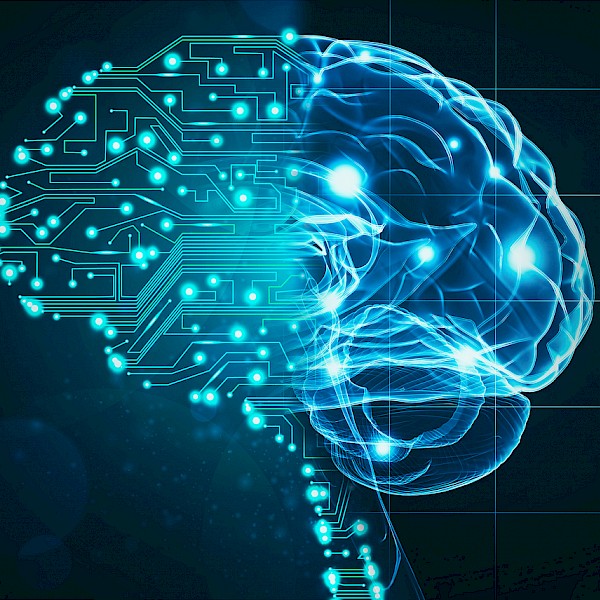What are the big themes in machine learning and how do they affect businesses?



AI is transforming the face of business today – and the pace of change will only accelerate in the years ahead. High-end processors and distributed, scalable cloud systems mean that services such as real-time voice recognition and translation are now very much a reality.
AI will provide a crucial point of competitive differentiation for enterprise businesses. These companies can cut costs by automating tasks; they can augment their staff using AI, to make better decisions, faster; and they can achieve a significantly higher level of business agility with better forecasting.


“AI has a huge range of application in business, from Intelligent Automation to Predictive and Prescriptive Analytics to Computer Vision,” comments Antonio Grasso, Founder/CEO of Digital Business Innovation Srl. “In my view the biggest benefits will be the augmented senses that AI can bring to our everyday business life. Computer Vision and Natural Language Processing can enhance our ability to perform many tasks, supporting our standard processes and especially those that relate to our customers, with great benefits [on offer] for customer experience.”
From interfaces to algorithms to automated systems, AI has the potential to touch every sector at every level. Self-driving vehicles – which could tackle haulage, deliveries and taxi services – hold the power to revolutionise the labour market in the very near future.
“We cannot expect to have a ‘general’ machine that can train itself, selecting data, features and more to fit every problem,” notes Antonio. “I think in the next few years we can see AI becoming more ‘easy to use’ thanks to AutoML (Automated Machine Learning) – a machine that help the operator in the normal pre-processing activities.”
A field that is particularly high on the agenda today is cybersecurity. “Cybersecurity is the most important challenge we need to face in the near future to avoid a slowdown in our digital transformation path,” comments Antonio. By identifying anomalies and patterns of behaviour that correlate with security breaches, AI can rapidly respond to threats in a way that would be impossible for a human. “The response time in case of a data breach is essential,” he notes.
Another major impact that AI will have is in bringing together IoT devices – which might mean setting factory machinery to work based on demand forecasts; or driving efficiency across an entire supply chain, based on historical data. “We are moving toward the Internet of Everything [connecting] people and things using data and processes,” says Antonio. “In this scenario, AI can play a fundamental role. Robotic Process Automation with AI (and Intelligent Process Automation) can play a major part in this."


Perhaps the greatest short-term concern about AI is the simple fact that it takes decision making out of human hands. This can potentially have enormous consequences if Machine Learning algorithms have learnt the wrong lessons (for example, acting in a way that might be seen as being prejudicial). To police this, it’s crucial for AI professionals to have visibility into how AI reaches the decisions that it does and the ability to identify red flags.
What’s more, when this overlaps with regulation (for example, forbidding discrimination in hiring or the provision of financial services) it may be necessary to extend this transparency to government and, potentially, to the individuals being analysed as well. This opens up a secondary concern, however. While legislation like GDPR stipulates precisely how personal data is used, AI may be endlessly accessing data and segmenting and collating user profiles.
Given these issues, there are increasing calls for regulation. In the meantime, the industry is filling the gap with organisations like OpenAI. Google recently set out to create an AI ethics board, but it quickly collapsed in the midst of controversy relating to the individuals who had been picked for the programme. It seems likely in the near future, that businesses will need to be able to demonstrate accountability and responsibility when it comes to AI governance standards.
It’s important to remember, though, that AI is not a monolithic thing. Instead, it’s a collection of different technologies, at different stages of development which we will interact with in a variety of different ways – and in many cases, we’ll be unaware of its guiding influence.


While there are certainly justified concerns about AI, the sheer versatility of the technology and the enormous benefits that it offers to businesses and consumers will see it becoming enmeshed in every part of our lives. A key question for the future, though, is whether the key driver for advances lies in engineering talent or access to data.
Incumbents with large-scale, organised and integrated datasets will be at a distinct advantage. However, China’s new social credit system – which tracks behaviour, interactions and relationships, online and offline – illustrates the potential to create truly vast databases and to integrate these with real people, places and property. It may just be that this data-rich environment gives Chinese businesses a critical advantage in the AI arms race in the years ahead.

Empiric is a multi-award winning business and one of the fastest growing technology and transformation recruitment agency's specialising in data, digital, cloud and security. We supply technology and change recruitment services to businesses looking for both contract and permanent professionals.

Read more (pdf download)
Empiric are committed to changing the gender and diversity imbalance within the technology sector. In addition to Next Tech Girls we proactively target skilled professionals from minority groups which in turn can help you meet your own diversity commitments. Our active investment within the tech community allows us to engage with specific talent pools and deliver a short list of relevant and diverse candidates.
For more information contact
02036757777